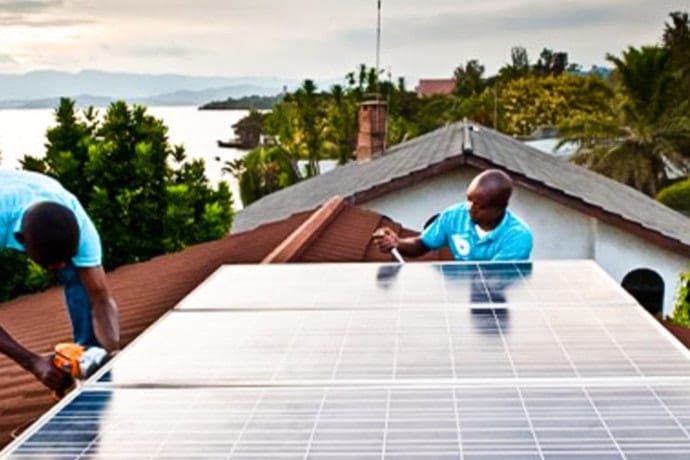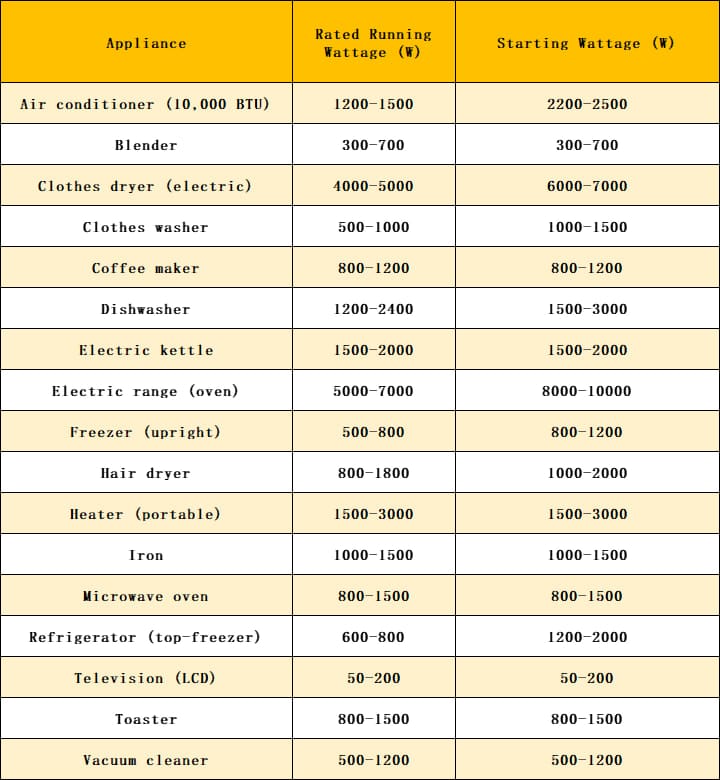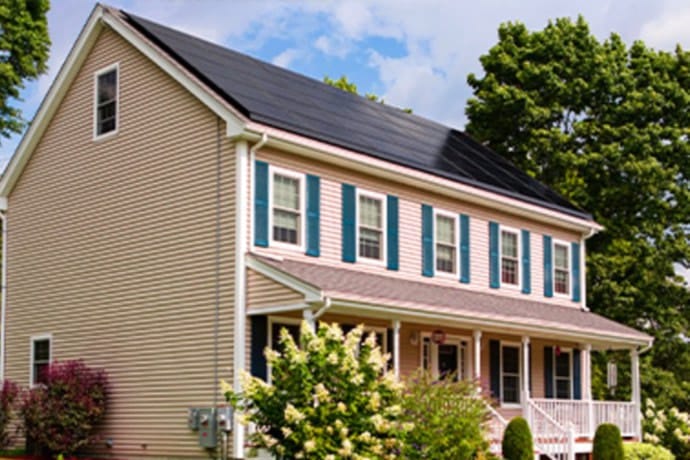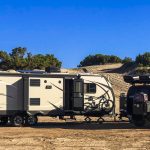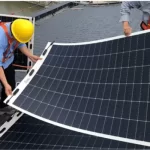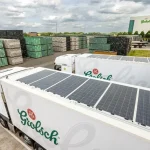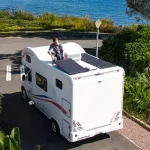Table of Contents
- Understand the types of solar panels
- Evaluating Solar Panel Efficiency
- Determining the size of your home solar system
- Calculate the cost of solar panels for your roof
- Comparing the price of solar cell systems for different houses
- Understanding the quality of different rooftop solar panels
- The importance of solar panel temperature coefficient
- The durability of home solar panels
- Installing solar panels on a home roof
- Summing up
- FAQs
Choosing the right solar panels can help you achieve a sustainable energy future and adopt a greener lifestyle.
Using solar energy is not only good for the planet, it can also help you save money. With conventional electricity becoming increasingly expensive and unreliable, more and more people are looking to the new energy industry, where the upfront cost of solar panels decreases over time.
Choosing solar panels is not an easy task, read this article to learn how to:
* Understand the different types of solar panels
*Understand the associated costs
* Determine what type of solar panel is right for your roof
Understand the types of solar panels
Solar panels are divided into monocrystalline, polycrystalline, and amorphous silicon types. Among them, monocrystalline panels are the most common and have the highest efficiency, but they are also relatively expensive; polycrystalline panels are more affordable and have higher efficiency, making them suitable for most homes; amorphous panels are cheaper but less efficient and not suitable for use in homes.
Evaluating Solar Panel Efficiency
The higher the efficiency of a solar panel, the more solar energy it can absorb, so the efficiency of the solar panel needs to be evaluated. In general, solar panels with high efficiency are also relatively more expensive. Therefore, a balance needs to be struck between efficiency and price.
Determining the size of your home solar system
Before choosing solar panels, you need to determine the size of solar panels you need for your home. The specific steps are as follows:
(1) Determine the power requirements of the appliance
(2) Convert volts/amperes to watts
(3) Calculate the operating wattage of the appliance
(4) Consider the start-up power requirements
(5) Calculate the starting and running wattage of total and common household appliances
For example, if you need a solar panel to power the lamps, TV, refrigerator, and air conditioner in your home, based on the table of starting and running wattage of household appliances, you can calculate the total wattage you need. Then, based on the efficiency of the solar panel and the hours of sunlight, you can calculate how big a solar panel you need.
Calculate the cost of solar panels for your roof
When choosing solar panels, cost is an important consideration. You need to consider the cost of solar panels as well as the cost of installation. Usually, the cost of solar panels depends on their quality and efficiency. When comparing costs, make sure you use the same criteria and parameters. In addition, the cost of installation may vary depending on the location and the materials required. It is possible to compare different prices by obtaining quotes from several solar companies. Factors such as tax credits and subsidies, which can reduce costs and improve returns, also need to be taken into account when calculating the cost of solar panels.
Comparing the price of solar cell systems for different houses
In addition to the cost of solar panels, you’ll also need to consider the cost of purchasing an entire home solar system. You can choose to buy it for cash, finance it or lease it. There are advantages and disadvantages to each approach. Cash purchases may require a higher one-time cost, but can minimize costs and improve returns. Financing can be paid for in installments, reducing the pressure to buy, but also requires interest and other fees. Leasing can reduce upfront costs but may require a long-term contract and monthly rental payments.
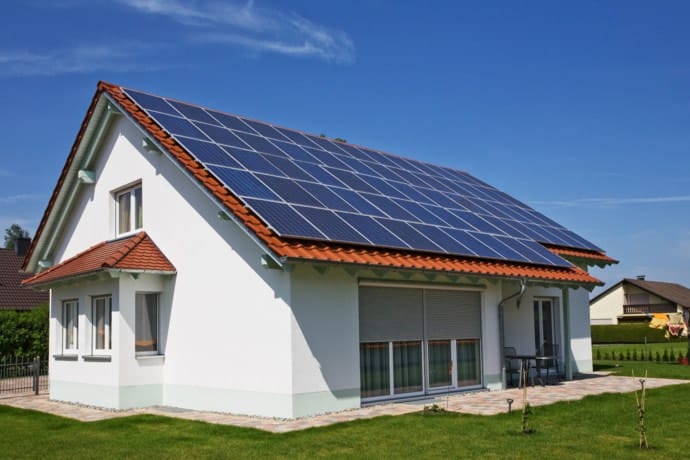
Understanding the quality of different rooftop solar panels
The quality of solar panels is an important factor to consider before making a choice. Quality solar panels can increase efficiency, extend life and reduce maintenance costs. You can check the manufacturer of solar panels to know their reputation and history. In addition, you can check the specification sheet of the solar panel for details about their cell type, material, size, and weight.
The importance of solar panel temperature coefficient
The temperature coefficient of a solar panel is a key parameter that describes the change in the efficiency of a solar panel in high and low-temperature environments. The efficiency of solar panels may decrease during high summer temperatures and may increase during low winter temperatures. Therefore, you need to choose a solar panel with a lower temperature coefficient
The durability of home solar panels
The lifespan of solar panels depends on factors such as their manufacturing quality, maintenance, and the environment in which they are used. When purchasing solar panels for your home, you should choose products that are of good quality and durable. Generally, high-quality solar panels can last for more than 20 years, so their long-term lifespan and maintenance needs should be considered when purchasing them.
Installing solar panels on a home roof
Installing solar panels on a home roof requires consideration of the following factors: roof orientation and inclination, shadows, and weather conditions such as storms and rainfall. Therefore, when choosing a location for installation, you should choose a location with the right orientation and inclination to avoid shadows and other unfavorable factors. In addition, the installation of solar panels needs to comply with local building codes and safety standards.
Summing up
Choosing the right solar panel requires consideration of several factors, including the type of solar panel, efficiency, size, cost, quality, temperature coefficient, durability, and installation. When selecting solar panels, you should choose according to your needs and budget, and choose a good quality and durable product. In addition, proper installation and maintenance should be carried out to ensure that they can be used to their maximum benefit.
Many people want solar panels that are both efficient and look good, so Sungold is a good choice, offering flexible, rigid, and portable options.
FAQs
Q: Can solar panels generate electricity on both sunny and cloudy days?
A: Solar panels are most efficient on sunny days, but they will also generate electricity on cloudy days. However, the amount of power generated by solar panels varies with the weather. If the weather is very overcast or cloudy, the efficiency of the solar panels may decrease.
Q: How many solar panels do I need to power my house?
A: The number of solar panels you need depends on your home’s energy needs and the available roof space. You can use a solar panel calculator to help you estimate how many solar panels you will need.
Q: Do solar panels require regular maintenance?
A: Yes, solar panels require regular maintenance. It is recommended to check the solar panels annually and clean them of dust and dirt to ensure their efficiency. If you find a damaged or faulty solar panel, it should be repaired immediately.
Q: How much can solar panels help me save on my electricity bill?
A: Solar panels can help you significantly reduce your electric bill, or even eliminate it altogether. The exact amount of savings depends on your home’s energy needs and the number of solar panels.
Q: Should I choose to buy or lease solar panels?
A: Both buying and leasing solar panels have their advantages and disadvantages. The advantage of buying solar panels is that you can own your own solar system, which may be more economical in the long run. The advantage of leasing solar panels is that you can avoid the high upfront costs and get more flexible payment options.
Q: Can solar panels be installed on any type of roof?
A: Solar panels can be installed on most types of roofs, including flat, pitched, and metal roofs. However, different types of roofs may require different types of mounts and brackets.


